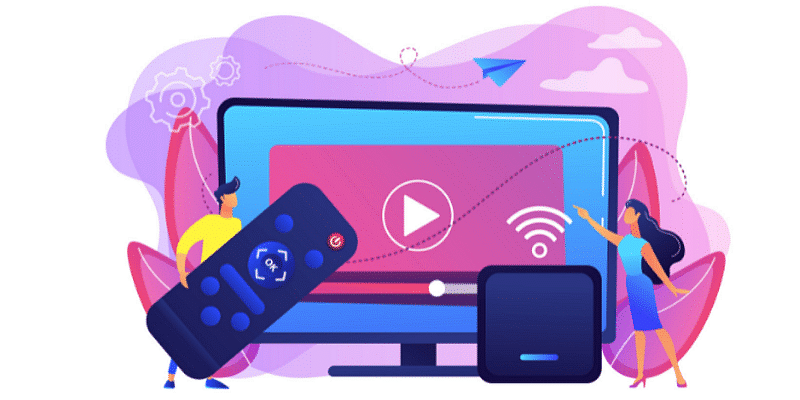Artificial Intelligence (AI) is changing the world as we know it. Advertising, which influences the way we feel about brands and persuades us to buy their products and services, is one of the key industries impacted by technology.
The skill of writing a good ad copy has singularly determined the quality of marketing, especially digital marketing where the impact of a good ad is immediate and always measurable.
Digital marketing agencies have spent millions of dollars on the recruitment and training of good copywriters. But now, using generative AI, an intern can churn out ad copies in under an hour. Similarly, ad creatives that used to take hours to create can now be churned at a large scale using AI tools.
Consumers have also evolved and now it is harder to create a memorable impact when we get bombarded with such a huge amount of content. In FY23, digital media overtook TV media spends in India, and ad formats are now fully optimised for digital-first. We’re used to seeing 10-second ad films and 6-second video ads.
In this supremely cluttered digital media space, consistency and frequent exposure win over memorable brand films in terms of immediate impact.
And this is just the beginning.
So when everything is moving towards automation and generative AI, should agencies be worried or should the clients evaluate AI tools instead of looking for good agencies? In my view, the answer is both yes and no.
Yes, because automation always increases bandwidth and pushes for upskilling. Therefore, adopting new technology is prudent to keep pace with the changing world. No, because marketing agencies have added significant value to the brand teams over the last 50 years or so. We have all seen great brands being built with the joint efforts of companies and their marketing agencies.
In the changing times, where all of us can do more with technology, what is the unique value that agencies bring to the clients?
Innovation
Marketing is both an art and a science, which opens up the possibility to try new things every day. Whether it is customer segmentation, ad copy, creative formats, or the campaign structure, for a marketer, all of these elements represent the scope for experimentation and finding better solutions.
The most important aspect of an experiment is the thinking that goes behind experiment design. A good client and a good agency partner will know what are the new things they are trying every month. Here, generative AI and other tools can help to streamline or speed up the process, but only a dedicated account manager will be able to run such experiments and implement learning at scale.
A good agency partner elevates the delivery quality every year and keeps pace with all the tech developments on the ad platforms.

A perspective
Over a decade ago, when I was a brand manager, I scoffed at my agency partner for suggesting some tactical campaign by saying “do you think we can afford this price” or “can you guarantee that this offer will increase sales”.
And I was not alone in my view that I knew my business better. Clients always know more about their business and their internal limitations and their agencies. But this blissful unawareness helps the agencies to generate unorthodox ideas, bring in the industry perspective, and respond with “why not?”
Ultimately, brands have to follow the direction in which consumer trends point towards. It is always better to act fast and be the first to ride a consumer trend than be a laggard and wait for internal issues to get resolved before acting on an important consumer trend.
Good agency partners know their role as no-limit thinkers and always push their clients to think beyond internal limitations.
Rigour and consistency
In digital marketing, everything is dynamic. From the performance of a new creative to end conversion, almost every metric changes by the day. What works today might not work tomorrow as the competition can ape it, or beat your offer with a better offer etc.
A good automated dashboard can track the key metrics and present data in desired formats to all.
But data visibility is always half the story, the other half of the story is data interpretation. A good agency team does 10 levels of deep analysis to decipher the data trends and presents all possible actions that can be taken to mitigate the risks.
The rigour is not limited to the day-to-day activities but also to all the marketing campaigns across the year.
Whether the client is a pizza brand looking to scale orders and capture demand on new year’s eve, or a jewellery brand trying to grab the lion’s share of Dhan Teras frenzy, the ad agency has to ensure teams work through festivals, city-wide power outages, rainstorms or any other out-of-the-ordinary situation so that the client always gets results.
AI tools are a boon for productivity and we have not even scratched the surface of the possibilities that these present. These tools will give us much better solutions for “how to do” problems, but in my view, good agencies will keep excelling in solving “what to do” problems.
The winning client-agency teams will have to keep pace with the development of both tech as well as consumer trends. It is time for collaborative thinking from both agencies and clients. As we all delegate some of our work to the latest AI tool, perhaps we should arrange more workshops to challenge our beliefs about what we know about our loyal customers and ideate on new initiatives to delight them.
(Deepti Bhadauria is Chief Strategy Officer at HiveMinds where she leads the strategy practice and is responsible for business growth.)
(Disclaimer: The views and opinions expressed in this article are those of the author and do not necessarily reflect the views of YourStory.)



![Read more about the article [Funding alert] IIT Delhi-backed Clensta raises Rs 5Cr from N+1 Capital](https://blog.digitalsevaa.com/wp-content/uploads/2021/05/Imagec23m-1622095988087-300x150.jpg)
![Read more about the article [Funding alert] Apna Raises $70M in Series B Funding led by Insight Partners and Tiger Global at $570M valuation](https://blog.digitalsevaa.com/wp-content/uploads/2021/06/Image8olm-1623807123987-300x150.jpg)





